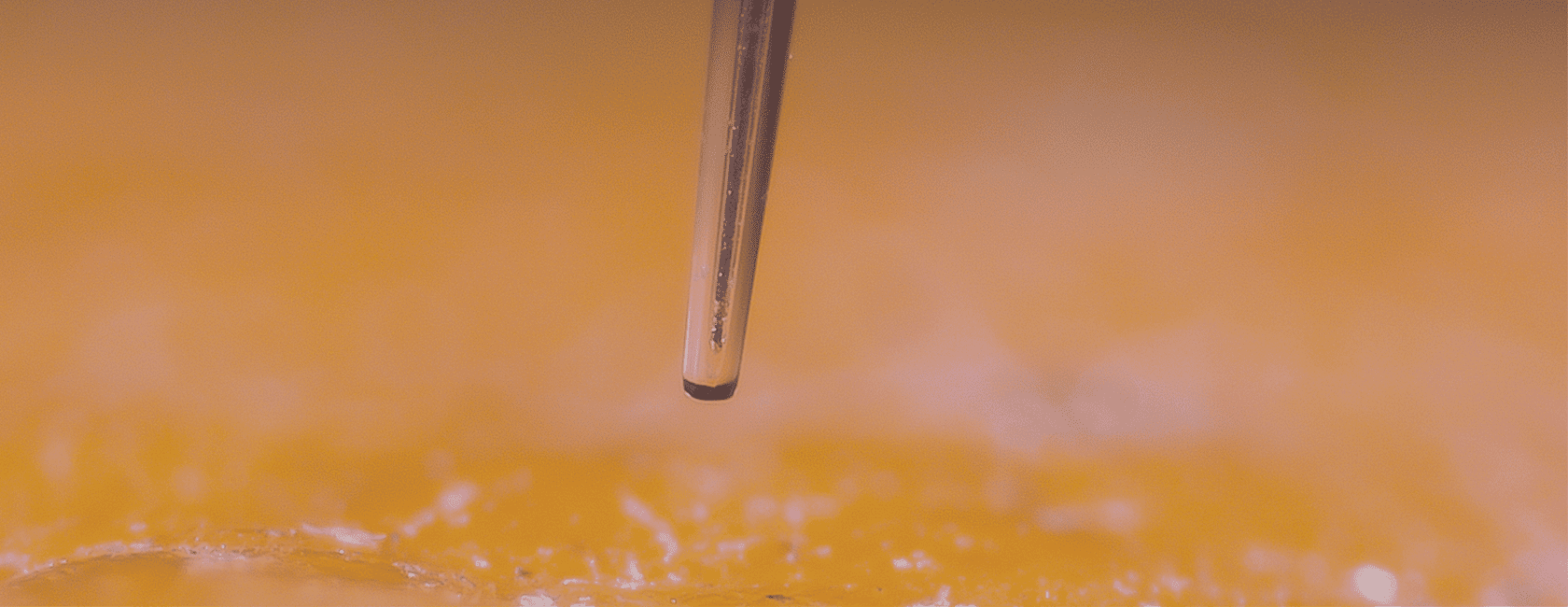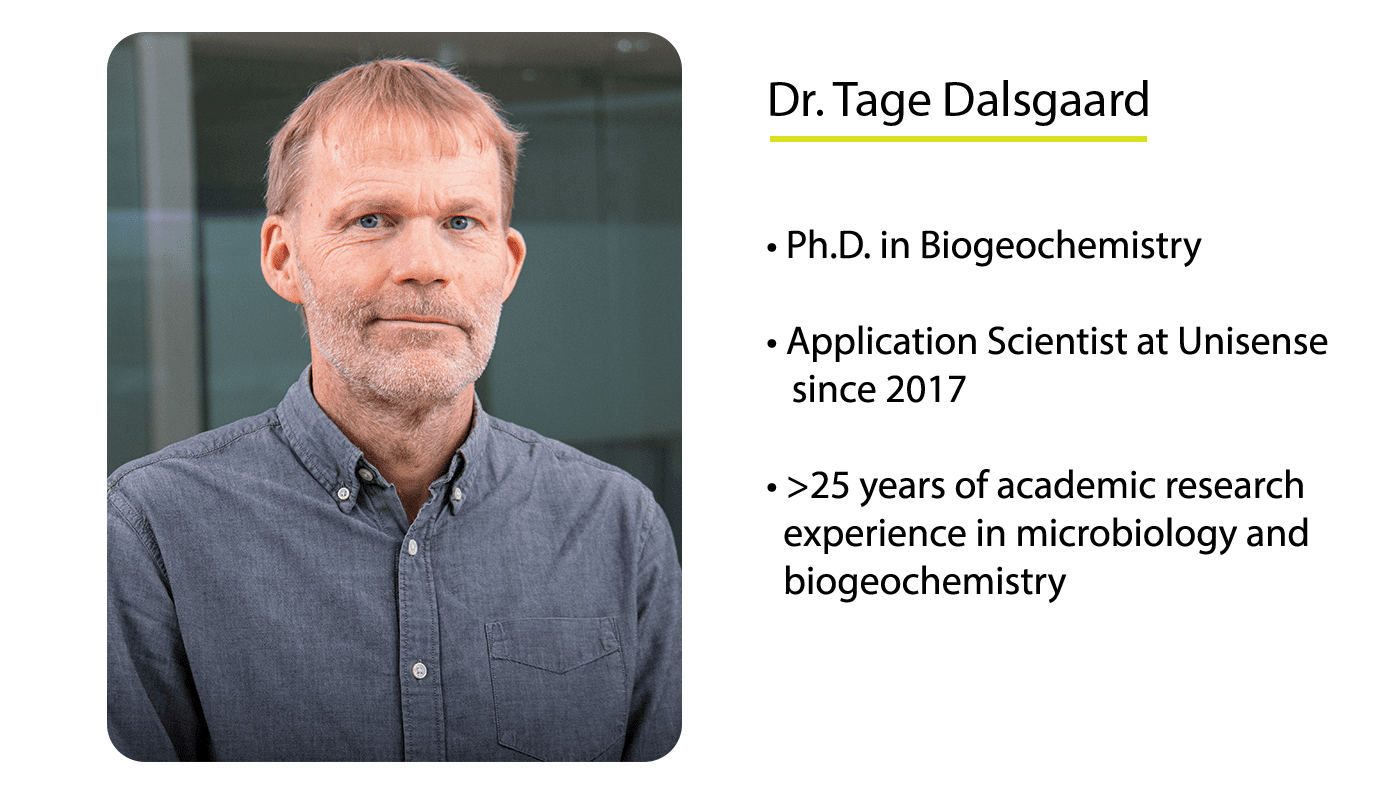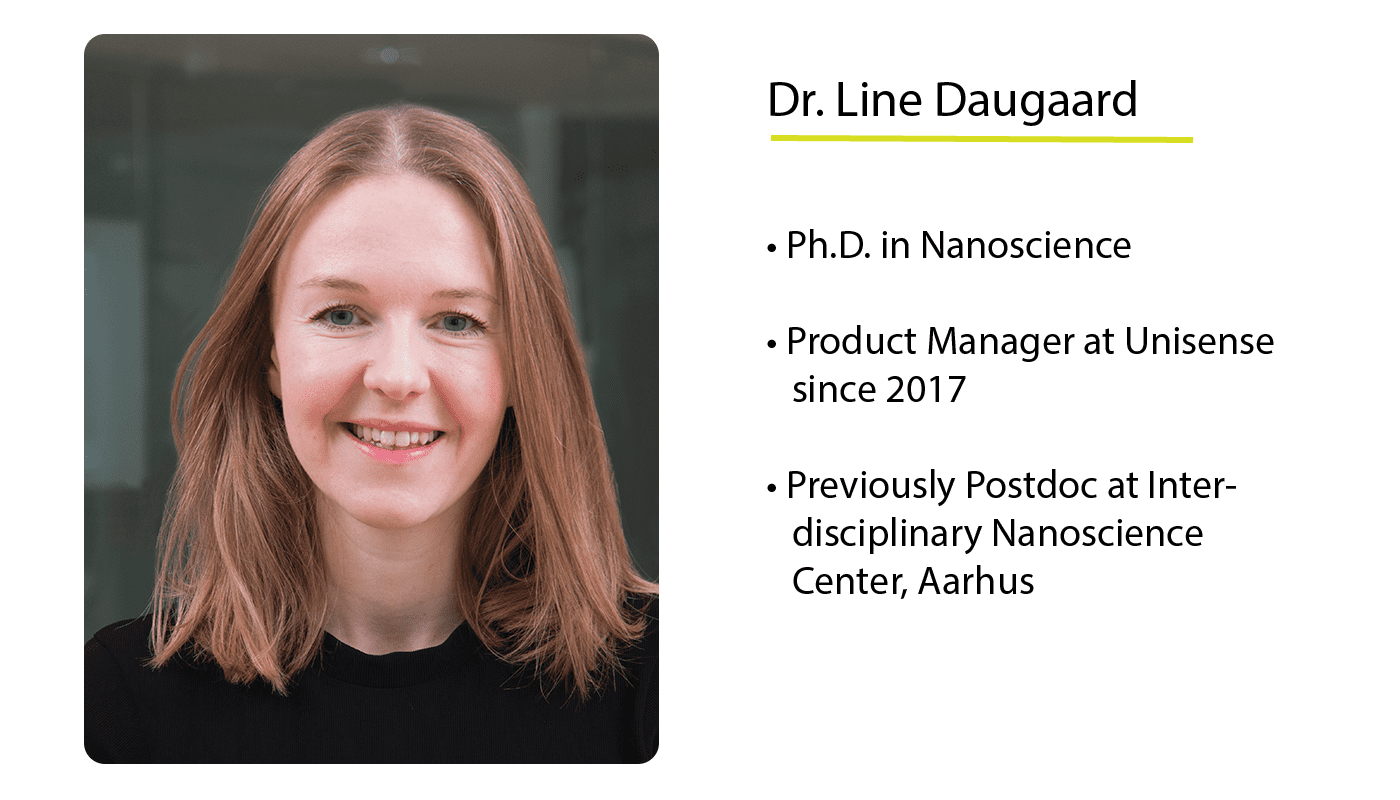
Online Microsensor Workshop
All lectures will be held online via Teams. Check out the program below.
Sign up for the workshop
Direct sign-up is now closed. If you are interested in taking part in the Online Microsensor Workshop, please send us an e-mail at sales@unisense.com.
Learn more about the workshop below.
By signing up to the workshop, you also agree to receive the Unisense newsletter.
What you can look forward to:
Our team of experts will go LIVE with 7 lectures and demonstrations to provide you with everything you need to know for successful microsensor measurements. You will learn about general microsensor application within research and applied sciences including including theory. We will also show you how to handle and use our products optimally.
You can ask the team all your questions during the presentations. If you want to discuss your microsensor application in detail, you are also welcome to contact us for an individual Teams meeting.

Who can participate:
The workshop is open to anyone with an interest in microsensor research. You can choose the lectures relevant to you. If you are planning microsensor measurements, just getting started, or an experienced user, the Online Microsensor Workshop will have something to offer you.
Can't make it?
Don't worry. The workshop lectures will be recorded and made available to everyone who signs up

Workshop Program
You can find the program for the Online Microsensor Workshop below. All times are listed in CET (Central European Time). Click the lecture title for a brief overview of what the lecture will cover. All lectures will be held online via Teams.Monday 13 March
2.30-2.50 pm: Welcome to the Online Microsensor Workshop
Dr. Line Daugaard, Product Manager at Unisense, will give you a brief welcome and introduction to microsensors along with a short presentation of Unisense. Finally, we will guide you through the Online Microsensor Workshop program.
3.00-5.00 pm: Microsensor Theory, Design, and Application
Dr. Lars Hauer Larsen, CSO at Unisense, will give you an introduction to microsensor technology. You will learn about the basic measuring principles behind the different microsensor types. We will discuss what to consider when you plan your microsensor measurements, and you will learn how to choose the right sensor type and tip size for different applications. We will also look into the physical and chemical influence on the measurements and calibrations.
Tuesday 14 March
2.30-3.30 pm: How to Use Microsensors in Biogeochemistry and Microbial Ecology
In this lecture by Dr. Tage Dalsgaard, Application Scientist at Unisense, we will discuss how microsensors can be used in biogeochemistry and microbial ecology. This includes what you need to consider when you make a microprofiling setup for measuring in e.g. sediments or microbial mats, the importance of steady state, and laboratory vs. in situ measurements.
We will also show you how you can use Unisense sensors for water column measurements and discuss the general use of microsensors incl. calibration and temperature compensation. The lecture will contain published examples of how researchers have used the sensors and a discussion of the measurements they made.
3.45-4.45 pm: How to Use Microsensors in Microbiology, Biomedical Sciences, and Renewable Energy Research
Microsensors are a great tool for analyzing microenvironments, determining concentrations in small volumes, and determining production/consumption rates.
In this lecture, Dr. Line Daugaard, Product Manager at Unisense, will show you how to set up microsensor experiments and explore examples of microsensor applications in microbiology, biomedical sciences and within renewable energy applications. This includes measurements in biofilms, cultures, animal tissues, reactors, photoelectrochemical cells and more.
Wednesday 15 March
2.30-3.15 pm: Demonstration of the MicroRespiration System
Dr. Line Daugaard, Product Manager at Unisense, will give you a brief introduction to the components of the MicroRespiration System followed by a live demonstration of setting up the MicroRespiration System, calibrating the MR sensor and recording rates including a demonstration of the software.
3.30-4.15 pm: Demonstration of the MicroProfiling System
In this online demonstration, Dr. Tage Dalsgaard, Application Scientist at Unisense, will demonstrate how the Microprofiling System works, the Profiling software, how a microsensor is calibrated, and measure microprofiles of oxygen in a sediment core.
4.30-5.15 pm: Profile Analysis - Calculation of Production and Consumption Rates from Microprofiles
Dr. Tage Dalsgaard, Application Scientist at Unisense, will show you how to calculate the total production and consumption rates as well as the distribution of these from the curvature of a microprofile. The Profiling software, which is part of our SensorTrace Suite, has a built-in microprofile analysis tool which can do this simply and easily. In this lecture, we will show you how to use the software. We will also discuss the theory and assumptions behind these analyses.
Sign up for the workshop
Direct sign-up is now closed. If you are interested in taking part in the Online Microsensor Workshop, please send us an e-mail at sales@unisense.com.
By signing up to the workshop, you also agree to receive the Unisense newsletter.
